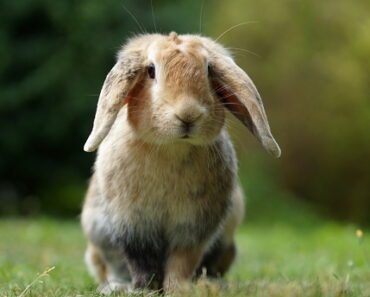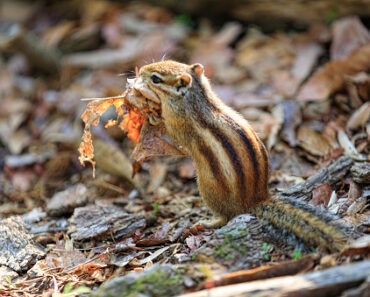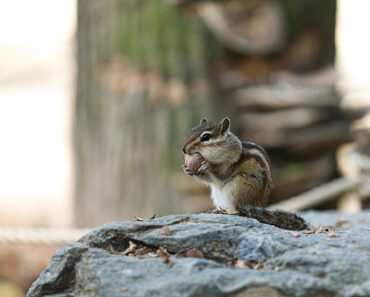
The ferret is a carnivore, a predator. It has a short and undifferentiated digestive tract, which makes its digestion very inefficient. In addition, its energy requirements are very high. In the wild, it feeds on small prey that it eats whole. These are mainly small mammals, but also reptiles, birds and fish. All its food is of animal origin, except for the digestive content of the prey itself, which is negligible in the ferret’s ration (less than 5%*).
Nutritionally, ferrets need a lot of good quality animal protein and lipids from animal fat, which are the main sources of energy. An excess of vegetable proteins could lead to urinary stones: it is therefore a strict carnivore. Fiber requirements are extremely low, and carbohydrate requirements appear to be zero.
There are different ways to feed a ferret today. The choice is important, because a faulty diet can have important consequences on health: oral or digestive problems, deficiencies, overweight or even certain tumours.
The different types of food
Dry foods: croquettes
For some years now, ferrets have found it easy to find kibbles specially formulated for ferrets. As an alternative, many owners use cat food. Dog food, which is absolutely unsuitable, and adult cat food, which contains too much fibre and too little protein and fat, should be avoided at all costs. Kitten kibble, although not perfectly suited for ferrets in the long run, is the only food that has a sufficiently high animal protein content.
Pay attention to the list of ingredients. Manufacturers are obliged to list the ingredients in descending order of weight. The first three ingredients should ideally be of animal origin. High protein and fat content and the lowest fibre content should be preferred.
These dry feeds have the advantage that they are convenient to use, easy to store, and readily consumed by ferrets.
The main problem is that carbohydrates (especially starch), which the ferret does not seem to need at all, are indispensable for the production of the kibble. It is these carbohydrates that give the kibble its consistency and texture. They are therefore all composed of cereals in variable quantities. Moreover, as their name indicates, unlike the prey eaten by the ferret in the wild, dry food is very low in water. For this reason the ferret has to drink a lot, which is not in its habit.
Wet food
Industrial “wet” feeds, i.e. pâté, are often very attractive to the ferret. Their main disadvantage is that they promote the formation of tartar and oral diseases, as they are very soft and do not allow mechanical brushing of the teeth. From a nutritional point of view, as these foods are extremely rich in water, their energy content is very low. The ferret should therefore consume a lot of them, which can lead to diarrhea.
The meat diet
Ferret feeding with small animals or meat is widespread in some countries such as England and Australia. Breeders and professionals often use a diet based on whole prey to get as close as possible to the diet of the wild ferret. These can be young 1-day-old chicks, mice and mice and mice and mice, mice and mice, young rats, hamsters or gerbils. Chicks are the cheapest prey. The ferret consumes 2 to 4 per day. He swallows his prey in its entirety, and thus eats the muscles, viscera and bones, which constitutes for him a very balanced meal. There is no need to feed live prey, as ferrets can easily eat already dead prey.
Of course, for private individuals the distribution of whole prey is neither very pleasant nor very easy on a practical level. You need to be able to store large quantities of frozen prey (and therefore have a large freezer), or arrange to share orders with other ferret owners. While some ferret owners do have this option, others are more reluctant to do so. You can give your ferret raw meat from poultry, beef, horse or lamb, liver and offal (heart, kidneys), eggs or even a bit of mozzarella* cheese. Fish fillets without bones are also appreciated. It is important to vary the type of meat as well as the cuts: an exclusively muscle-based diet is likely to lead to excess phosphorus and calcium deficiency, which can lead to secondary hyperparathyroidism and bone fragility. An exclusively household ration on a daily basis is therefore quite expensive and difficult to manage.
Rumours have been spread that ferrets fed with prey or meat are more aggressive than others. There is no scientific basis for these rumors.
How to feed your ferret?
As you can see, there is currently no ideal diet for the pet ferret. All solutions have advantages and disadvantages.
Ferrets seem to be very attracted to the taste of sugar, although they don’t need it. In any case, industrial ferret treats, often made up of plant foods and sugars, should be banned. Also, don’t overuse tubes of vitamin paste, which are very popular with ferrets, or dried or fresh fruit. Instead, choose a piece of fresh meat or occasionally an egg yolk.
If you opt for an industrial food, choose it for ferrets or, failing that, for kittens. The croquettes should be kept in vacuum-packed packaging, in a cool and dark place to prevent the lipids from becoming rancid. If your ferret tends to be overweight, it is best to avoid feeding it food at will. It is preferable to divide the ration into two or three daily meals, at least (in natural conditions the ferret takes about ten meals a day). Wet food can be given occasionally.
Fresh meat, giblets, egg yolks can be given as a supplement. The idea is to give the ferret a varied diet. This will allow the nutritional needs of the ferret to be met while avoiding rare, but nevertheless present, nutritional pathologies caused by an excess of food in the diet. For example, an excess of raw egg white will potentially lead to a biotin deficiency, an excess of liver can cause hypovitaminosis A, and a ferret that overfeeds on certain fish is at risk of a thiamine deficiency.
It is more prudent to feed the ferret meat when it is in its cage. This will avoid finding small pieces of meat hidden all over the house. Also, at each meal, feed only the approximate amount your ferret consumes at one time: any uneaten pieces should be removed and discarded.
Finally, remember that ferrets need fresh, clean water in a bowl or bottle at all times.






